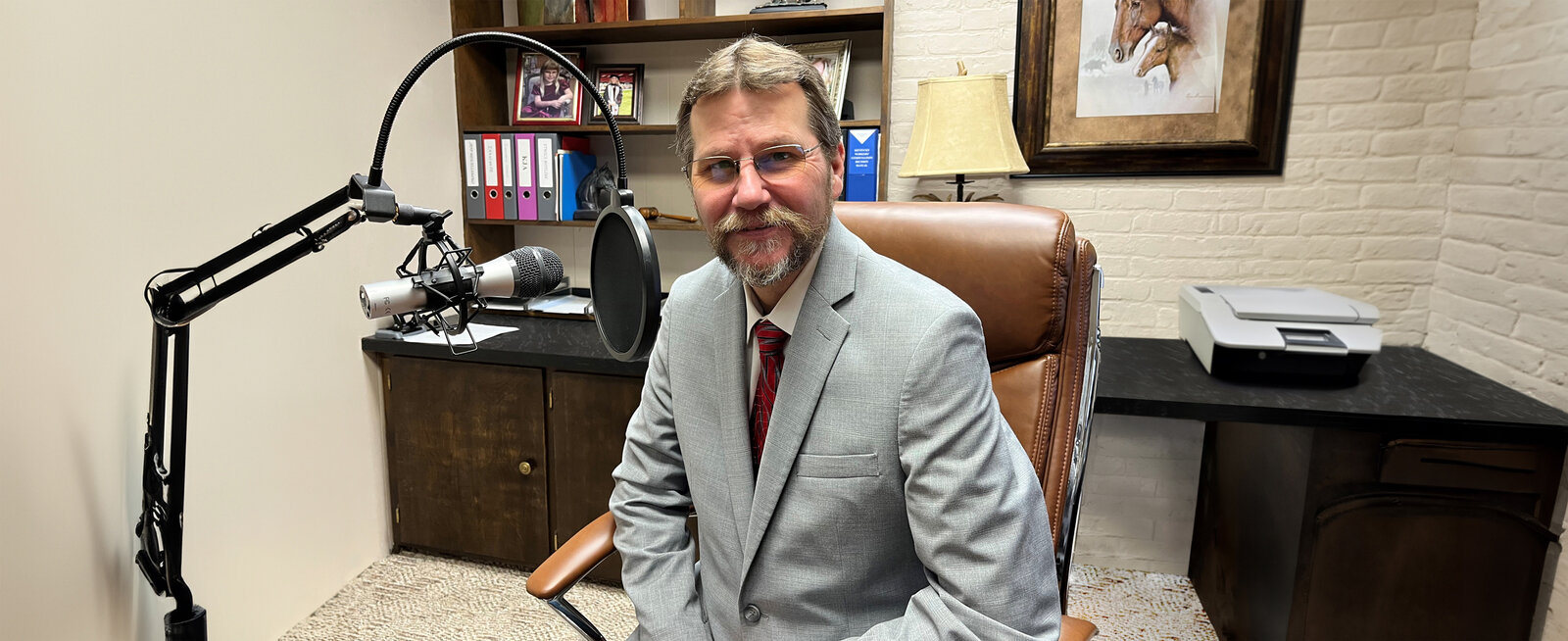Episode 32: Jeff Roberts is a Calloway County workers’ compensation attorney. In this episode, he explains what happens if your Kentucky workers’ compensation claim is denied. If you’ve been injured at work, these benefits may be extremely important to you and your family. The game isn’t over and Jeff explains why.
According to Jeff, this happens more frequently than people would think. There are many reasons why the insurance carrier may try to deny the claim. Jeff goes on to discuss some of the more common reasons they will try to use.
The Injury Wasn’t Work-Related or Was Pre-Existing
This explanation tries to blame the injury on something that may have happened outside of work. If they can prove this, they won’t have to pay the workers’ comp benefits. They may also try to blame it on the natural aging process or a pre-existing condition. These are common reasons used to tell employees a workers’ compensation claim is denied.
In Episode 30, Jeff provides a detailed discussion of pre-existing conditions and how they can be classified differently. Not all pre-existing conditions would disqualify someone from receiving Kentucky workers’ compensation benefits.
It’s very possible that these denials can be posturing by the insurance company. Don’t give up. You may need to have an experienced workers’ compensation attorney review the facts. A denial doesn’t mean the claim is invalid. At the Roberts Law Office, the initial consultation is always free.

The Workers’ Comp Insurance Company Doesn’t Work for You
Even though the insurance carrier would be responsible for paying a valid injury claim, it’s important to remember they work for the company – not for you. The coverage is paid by the company so you can probably figure out where the loyalty is.
If you decide to hire a workers’ compensation attorney, he or she will be working for you and your interests.
You Didn’t Give Notice of Your Injury
This is another common reason used to deny claims. In Kentucky, a person who sustains an injury on the job is required to notify the company (i.e. “to give notice”). However, you may not have to do it immediately following the injury. It may take a few days for you to decide to see a doctor. If it’s determined the injury is work-related, you need to give notice.
If your company has a policy requiring employees to report the injury within 24-48 hours to qualify, Kentucky law overrides these policies. You typically wouldn’t be denied benefits because you didn’t report the injury in 24-48 hours. Nonetheless, companies often try to rely on these arbitrary policies.
Cumulative trauma injuries (also called repetitive motion injuries) don’t happen immediately. However, the injury can still be work-related and therefore qualify for Kentucky workers’ compensation benefits. Jeff explained these types of injuries in Episode 31. Again, once the doctor determines this is due to your job activities, you should notify your company.
You Weren’t Actually At Work
This reason is used but again, can be proven false. You don’t have to be physically in the building to sustain a work-related injury. Jeff admits, this can be tricky, but let’s think about it. If you have to travel for business injuries sustained during travel may qualify. A construction worker who arrives at the shop and gets dispatched to a jobsite, but is injured on the way there should qualify for workers’ comp. Although, if the accident happened on the way to the shop, it may not be work-related.
A home health nurse who is leaving his/her home to go to a patient and then to several other patients before returning home may qualify for workers’ compensation if the injury happens during those trips (even if it’s the one from the house to the first patient’s home).
If your boss or supervisor asks you to stop off to deliver something or to pick-up something, an argument can be made that you were on company business when the injury occurred.
Sales representatives who leave a home office (or company location) to make customer calls can still qualify for workers’ compensation if they are injured while driving. However, if you decide to run an errand during business hours, you may get denied because it wasn’t company work. Again, speak to an attorney about your specific situation.
If you park in an employee parking lot, or other designated lot, and get injured on the way into work, it can be considered work-related – even though you haven’t clocked in yet. You were on company property. Jeff recommends you seek out an attorney’s opinion in this situation. Your specific facts will help to determine if the injury occurred during the normal course and scope of your work.
Horseplay Can be Grounds for a Denial
There is an exclusion for an injury sustained on the job. Jeff explains that if you were engaging in horseplay (i.e. goofing around) when you got injured, usually your workers’ compensation claim is denied. There are exceptions. If your supervisor or other manager is involved and this activity “happens all the time,” your attorney may be able to successfully argue that your injury does actually qualify.
If you’re injured because of other co-workers who were goofing off at the time, you probably do have a qualifying workplace injury – as long as you weren’t actively participating in the horseplay.
Intoxication on the Job Can be Grounds for a Denial
There are some areas of this issue that are still legally undecided. Jeff reads the current statute’s language to mean that a blood test is required, not a urine test. Additionally, if the intoxicating substance is found in the blood, it’s a disqualification. It’s not a matter of the level in the blood, rather, it appears to be simply the presence of the illegal substance in the blood.
If you have a prescription and that medicine shows up in your blood report, as long as it’s at the prescribed level, you may be okay. An important factor is that you and your attorney can prove you’re taking the medication as directed.
In Episode 15, Jeff addressed the impact of substance abuse on SSDI claims. He commented on workers’ comp claims at the 16:40 mark in the episode.
Interestingly, this same statute may only apply to drugs and not necessarily alcohol, even though it uses the terms related to “intoxication.” It’s a poorly written statute that will probably either be revised or challenged in court.
Is It Time to Speak with an Attorney about Your Workers’ Compensation Claim?
The office phone number is (270) 753-0053. For more information, visit www.JeffRobertsLaw.com. This podcast is meant to provide information and is not legal advice. Jeff’s principal office is located at 509 Main Street, Murray, Kentucky. Co-host Jim Ray is a non-attorney spokesperson. This is an advertisement.




